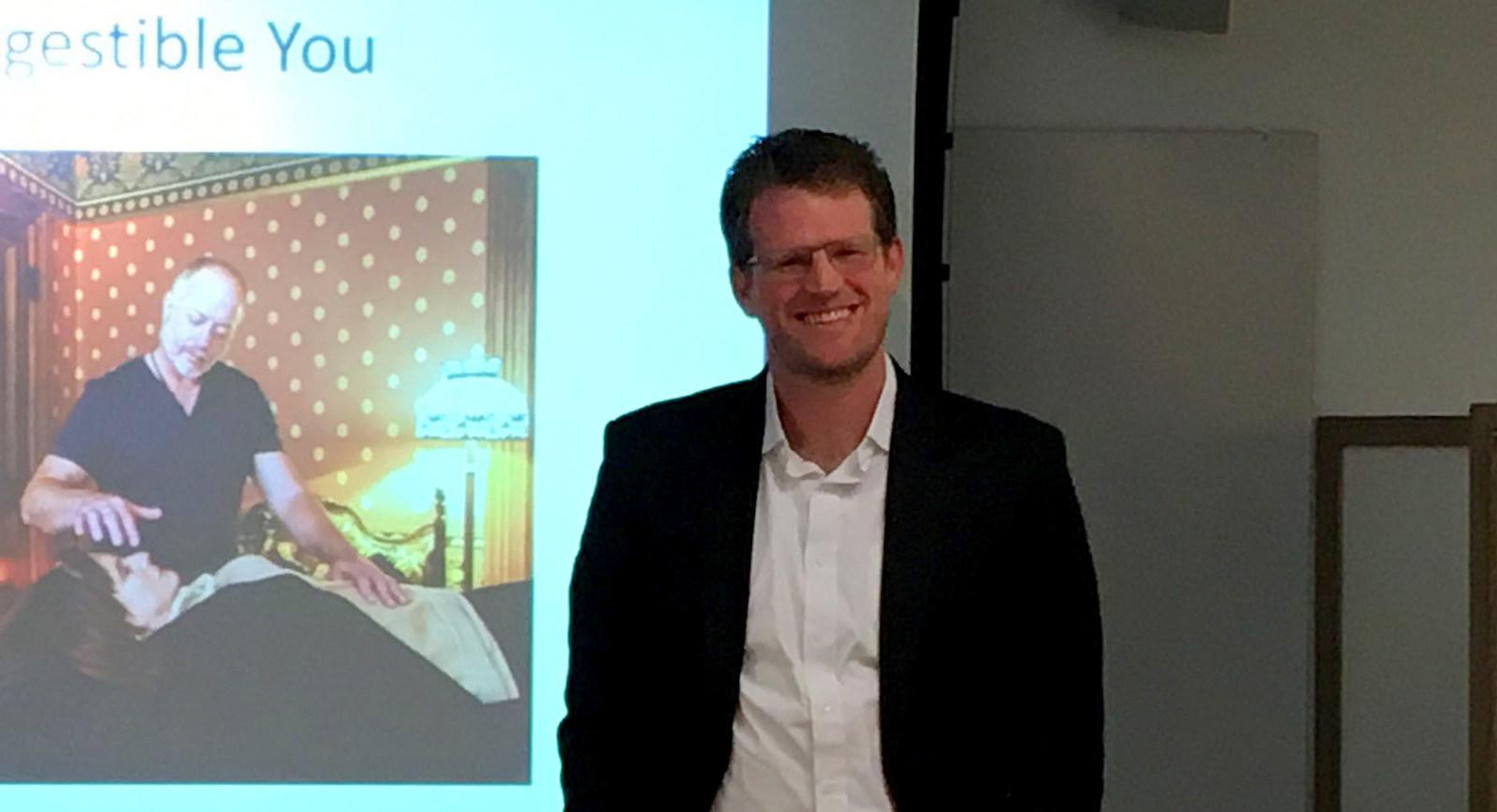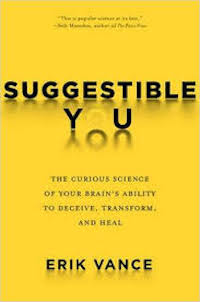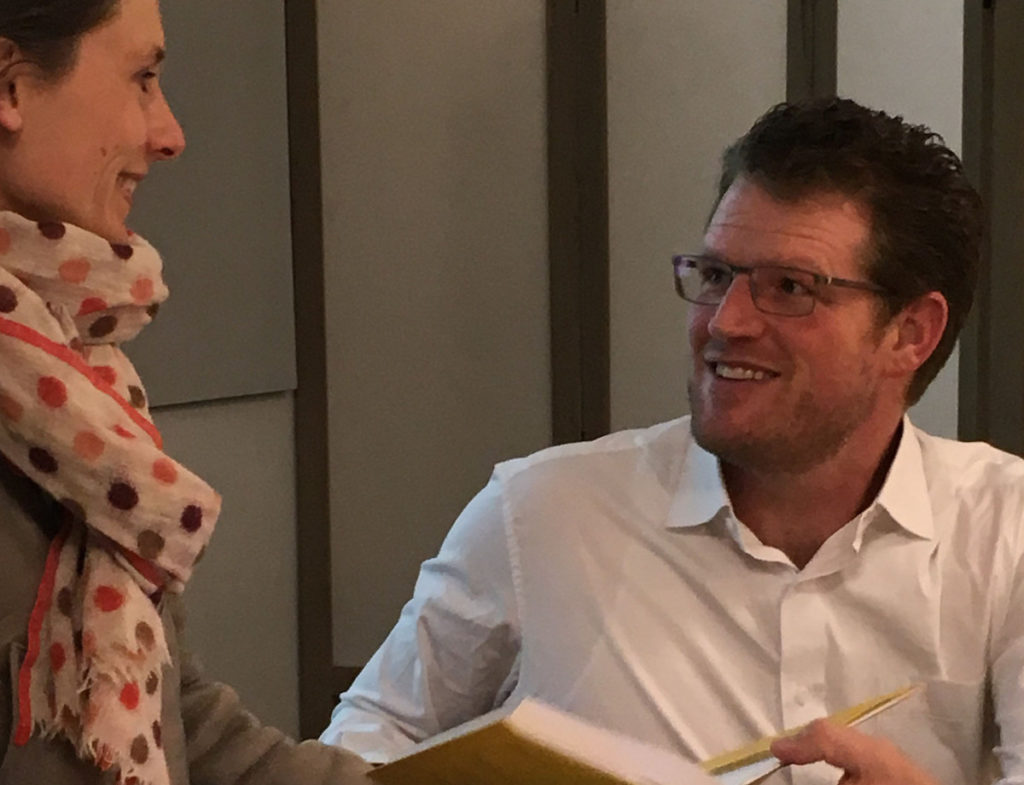
When he was 1½ years old, Erik Vance became very sick with what he now suspects was the rare and life-threatening form of pneumonia known as Legionnaires’ disease. His parents were Christian Scientists, so doctors and hospitals were virtually out of the question; instead, his mother took him to a religious practitioner, who told her that if she had full confidence her son could recover, it would be so.

Shortly after the session, she walked into the room to find Erik waiting, completely cured.
“But this isn’t the point of my book,” Vance — now 40, an acclaimed science journalist, and the author of the new book “Suggestible You: The Curious Science of Your Brain’s Ability to Deceive, Transform, and Heal” — explained to the KSJ fellows during his visit at the end of the first semester.
“The point wasn’t to figure out what happened that night,” he continued. “But that story created powerful expectations for me whenever I want to heal myself. I thought, ‘I have some serious firepower.’”
The human brain is all about expectations — making predictions about the future based on the past. For example, “I know gravity works, so this cup will fall when I drop it.” The brain doesn’t like to be wrong, so sometimes it bends reality to meet its predictions. This process, Vance explains, releases brain chemicals like dopamine and serotonin that can trick the body into feeling a certain way. Therein lies the science of the placebo effect.
A powerful promoter of that effect is what Vance calls “the theater of medicine” — an environment or a collection of cues that indicate healing is imminent. These signals vary from culture to culture. In Western countries, a crisp white coat suggests the person before us is a medical professional. Churches and their associated saints can also embody healing, just as a young girl can serve as a trusted shaman in some parts of the world. Irrespective of location, creating expectations is something we all do.
Vance recounted the experience of a Parkinson’s patient who volunteered to participate in a drug trial. The man underwent the standard cranial operation — a “theater of medicine” procedure — to inject the drug. Afterward, he went from barely walking to Telemark skiing. Miracle cure? No, he had been in the group that received a placebo. It turned out that the placebo effect was so strong it consistently outperformed the drug.
Vance noted that the placebo effect can create obstacles for researchers, because it operates differently with different individuals and different diseases. Nor is it the only case in which the brain fools the body. “Suggestible You” also explores hypnosis, which — like many of the experiments described, with the exception of brain surgery — Vance tried for himself. (He learned he was virtually unhypnotizable.)
Like the placebo effect, hypnosis occurs when the brain fabricates reality — but this time based on the hypnotist’s suggestions, which generate visceral, physical responses in the subject. Vance told the KSJ fellows that one burn victim refused to remove his bandages or clean his injuries until he was under the hypnotist’s trance, at which point he ceased to feel the pain of his wounds. While hypnosis is usually considered a pseudo-science at best and an act of sorcery at worst, Vance said it likely stems from many brain cells acting in concert, creating “waves” of electrical impulses.
KSJ fellow Bianca Vázquez Toness found this segment of Vance’s talk particularly captivating. “I’m interested in hypnotism as it applies to childbirth, and he definitely gave me a framework in which to think about that,” she said.
Meera Subramanian was impressed by the way Vance took a scientific approach to phenomena that are easily dismissed. “We only understand part of how these things work,” she said. “So his insight was revealing, although in some cases it introduced even more questions.”
The intersection of brain and mind is a mysterious one, since the brain is such a compelling storyteller. Addressing his audience of journalists, Vance concluded: “You guys will recognize this storytelling. In the case of hypnosis and placebo, we create expectations by telling ourselves a story. The story may be true or not, but that’s just how we operate as humans.”





Leave a Reply